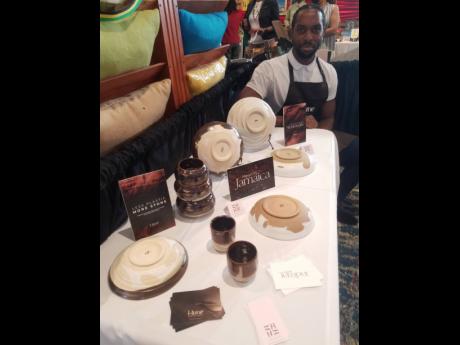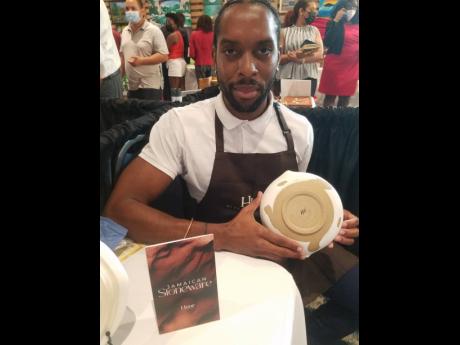Less plastic, more stone
There is a worldwide campaign against the use of plastic, which is not biodegradable, and can be detrimental to the environment and human life. And Jamaican stoneware artisan, Michael Hudson, is playing his part in the eradication of the use of plastic, with his ceramic items, hewn in Jamaica.
Through his brand, HUNE, which is a play on the word hewn, Hudson produces and sells ‘Jamaican stoneware’, made of local and imported clay, “shaped and created for those who care deeply about sustainable quality”. He operates under the tagline, ‘less plastic, more stone’, a clear indication of his positive attitude towards environmental preservation.
“You are clearly promoting environmental preservation with your brand mantra, but the feeling is that products, such as yours, are more expensive than plastic stuff, thus plastic sells faster than earthenware utensils. Therefore, the message of preservation and protection is lost on prospective buyers,” was an argument posed to Hudson.
He replied, “Yes, that is true, but only in part. The brand mantra of ‘less plastic and more stone’ not only associates HUNE with sustainable practices, but also enlivens that association for customers and creators alike. Consumer mindfulness in Jamaica can sometimes feel thwarted by the lack of understanding of how things are prepared, manufactured, and made accessible to us.”
And for those who are not very inquisitive, if any at all, “the mantra,‘less plastic and more stone’, is a very small initiative to reroute the mind of our customers to ask, why? Why less plastic and more stone? What’s wrong with plastic? Then we can start the conversation”. The conversation has certainly started, but what is the general feedback to Hudson’s products like?
“Sometimes it’s relief, excitement, or intrigue. I believe HUNE is providing one of the many ways Jamaicans are enjoying what it means to say, ‘Made in Jamaica’. It has been so fulfilling to see the positive feedback to our products made by Jamaican hands, with intention, pride, and quality,” Hudson, the lead artisan and marketer at HUNE, said. He also draws, is a designer and a digital artist.
Hudson also said he is into taking something (clay) that Jamaicans love to use over the years to manipulate it, add aesthetics qualities to it, to make something new. He has a “pretty static” colour scheme of earthen colours “to create a better collection of works”, including vases, plates, bowls, cups and cultural installations.
He uses much “expressionistic markings and drawing of patterns” to create particular effects, as he said the essence of the production is an internal form of expression. “I want to represent Jamaica in a way that is not so cliché,” he revealed, as he intends to inspire interest with the look, “something significant, new, significantly bold”. And, his products, whose production is an extensively long process, must be beautiful, useful and sustainable.
This raises the issue of people buying items such as his for decoration and other ostentatious reasons. “That’s something I do want to tackle. As Jamaicans, if we bought something we must be able to use it. I want people to feel earthy, and use them for various reasons, to feel comfortable using art as utensils,” Hudson said.
The business got off the ground in 2021 during the height of the COVID-19 pandemic. He was trained and inspired by various Jamaican potters, and there are plans to extend his range of products. “Yes, we will continue the explorations of ‘rural elegance’ in our tableware collections, as well as the production of a charming line-up of sculptural series this year,” Hudson said. And of course, the environment will be taken into consideration. It is about beauty, utility and sustainability.


